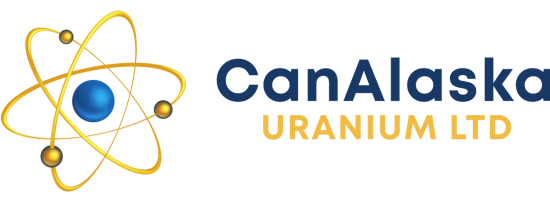Vancouver, Canada, August 30th, 2011 – CanAlaska Uranium Ltd. (TSX — CVV) (“CanAlaska” or the “Company”) is pleased to report the results from this winter’s truncated drilling program on the Cree East project. Operations were shut down prematurely in February, 2011 due to a fatal accident involving a member of the drill contractor’s crew. CanAlaska’s partners at the Korean Consortium, who are 50% joint-venture partners in the Cree East project, have reviewed the results of the three new holes completed into the basement during the program and CanAlaska is preparing for the continuation of drilling at these sites in Winter, 2012.
CanAlaska staff will complete the current geophysical data processing during the course of this summer, and is preparing to initiate further geophysical surveys in late-2011 on nearby targets. Drilling is planned to recommence in early winter 2012.

All three winter drill holes that reached into the basement rocks (CRE072, CRE073, and CRE074) showed distinctly anomalous alteration and mineralization features, further extending the zones of strong alteration which characterize Zone A and Zone I.
Of particular interest was drill hole CRE073, which was finally lost in a highly-altered zone of strongly hematised massive clay in basement rock at Zone A. This hole was a 100-metre step-out to the northwest of holes CRE035 and CRE037. Within this immediate area, all previous drill-holes have located major fault offsets, with hematization and clay alteration both in the sandstone and basement units. In CRE073, the basement rocks were systematically sampled for the purpose of mapping geochemical and alteration haloes. Samples reported are composites of 5-10cm half core taken at every metre marker throughout the drill hole. The analyses of these samples show elevated silver (highest 6.4 oz/t), associated with elevated copper, cobalt, nickel, zinc and minor uranium mineralization in the basement clay zones and in the associated pegmatites and pelites as shown in Table 1 below. The drill hole was lost at the second clay zone, approximately 100 metres from its target depth.
Table 1. Anomalous Mineralization in Hole CRE073 (Bolded)
| DDH | From m |
To m |
Thick m |
Lithology | Ag ppm | Co ppm | Cu ppm | Ni ppm | Pb ppm | Zn ppm |
| CRE073 | 349.5 | 351.5 | 2 | BIF | 0.10 | 2.4 | 4 | 6 | 13.3 | 24 |
| CRE073 | 351.5 | 356.5 | 5 | Pelite | 0.05 | 6.3 | 4.3 | 104 | 7 | 16 |
| CRE073 | 356.5 | 359.5 | 3 | Pegmatite | 0.05 | 9.2 | 2.9 | 57 | 1.9 | 33 |
| CRE073 | 359.5 | 361.5 | 2 | Pelite | 0.05 | 204.8 | 45.6 | 820 | 6.4 | 1191 |
| CRE073 | 361.5 | 363.5 | 2 | Pegmatite | 0.05 | 6 | 2.9 | 51 | 2.4 | 12 |
| CRE073 | 363.5 | 364.5 | 1 | Pegmatite | 0.05 | 305.7 | 20.9 | 1383 | 5.4 | 1304 |
| CRE073 | 364.5 | 365.5 | 1 | Pegmatite | 0.05 | 4.7 | 2.3 | 50 | 1.3 | 7 |
| CRE073 | 365.5 | 368.5 | 3 | Clay | 0.10 | 138.9 | 24.1 | 510 | 3.6 | 373 |
| CRE073 | 368.5 | 373.5 | 5 | Clay | 200.00 | 62.1 | 1326.8 | 286 | 2.6 | 389 |
| CRE073 | 373.5 | 374.5 | 1 | Pegmatite | 0.50 | 5.7 | 6.4 | 30 | 1.5 | 5 |
| CRE073 | 374.5 | 383.5 | 9 | Pelite | 11.20 | 96.4 | 18.9 | 242 | 42.7 | 223 |
| CRE073 | 383.5 | 389.8 | 6.3 | Clay | 4.10 | 54 | 48.3 | 139 | 4.3 | 53 |
Additionally, the basement interface in hole CRE073 was intersected 40-50 metres higher than expected and the drill hole cut a repetition of the sandstone, in what is thought to be a reverse fault. This drill intersection is depicted on Section A-A’ below (Fig 2). The section shows also that the uranium halo (including anomalous nickel, arsenic and lead) in the sandstone continues to reach more than 100 metres above the unconformity.
Areas of co-incident low resistivity in the sandstone of these areas have been outlined by previous geophysical surveys and represent the prime targets for drill-testing under the recently-approved $3.1 million Winter 2012 budget.

President Peter Dasler commented “We are working on a physically large project, with multiple significant geophysical targets. Each target is being progressively tested. Drill hole CRE073 in Zone A displays the intense physical alteration which is expected near a significant uranium deposit, and the elevated trace element geochemistry has given us important information as to vectoring our ongoing drill programs within Zone A’s large alteration halo.”
All of the samples from the Cree East project were submitted to Acme Laboratories Vancouver, an ISO 9001:2000 accredited and qualified Canadian Laboratory, for their Group 4B analysis. These samples were analysed for uranium and multi-element geochemistry by tri-acid digestion and ICP-MS. The samples were collected by CanAlaska field geologists under the supervision of Dr. Karl Schimann, and were shipped in secure containment to the laboratories noted above.
Peter Dasler, M.Sc., P Geo. is the qualified technical person responsible for this news release.
About CanAlaska Uranium
CANALASKA URANIUM LTD. (CVV — TSX, CVVUF — OTCBB, DH7F — Frankfurt) is undertaking uranium exploration in twenty one uranium projects in Canada’s Athabasca Basin — the “Saudi Arabia of Uranium”. Since September 2004, the Company has aggressively acquired one of the largest land positions in the region, comprising over 2,500,000 acres (10,117 sq. km or 3,906 sq. miles). To-date, CanAlaska has expended over Cdn$75 million exploring its properties and has delineated multiple uranium targets.
For more information visit www.canalaska.com
On behalf of the Board of Directors
“Peter Dasler”
Peter Dasler, P. Geo., President & CEO
Contact:
Emil Fung, Director & V.P. – Corp. Dev.
Tel: +1.604.688.3211
Email: info@canalaska.com
The TSX has not reviewed and does not accept responsibility for the adequacy or accuracy of this release: CUSIP# 13708P 10 2. This news release contains certain “Forward-Looking Statements” within the meaning of Section 21E of the United States Securities Exchange Act of 1934, as amended. All statements, other than statements of historical fact, included herein are forward-looking statements that involve various risks and uncertainties. There can be no assurance that such statements will prove to be accurate, and actual results and future events could differ materially from those anticipated in such statements. Important factors that could cause actual results to differ materially from the Company’s expectations are disclosed in the Company’s documents filed from time to time with the British Columbia Securities Commission and the United States Securities & Exchange Commission.

